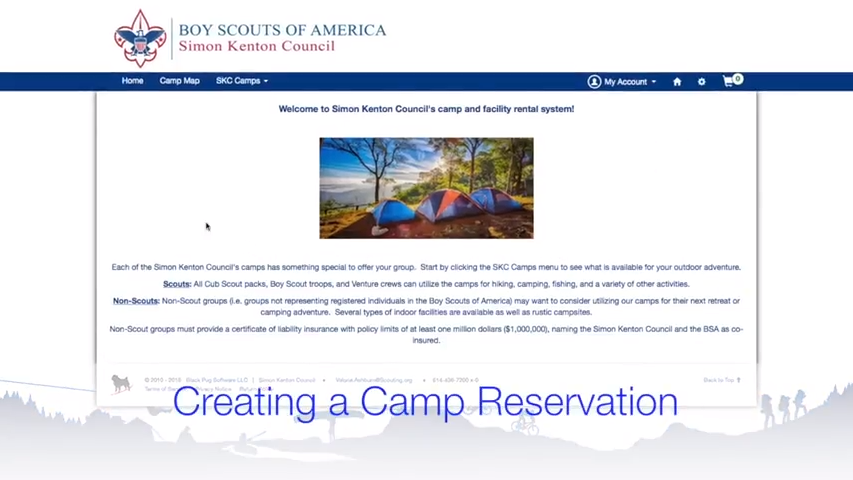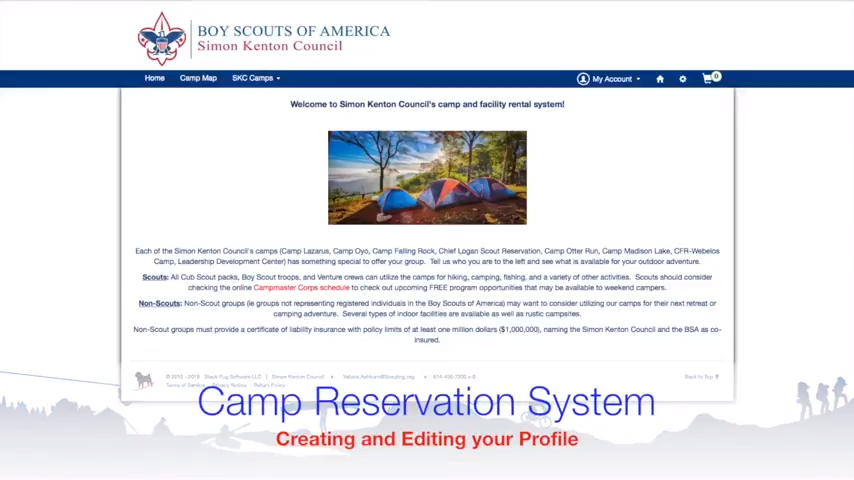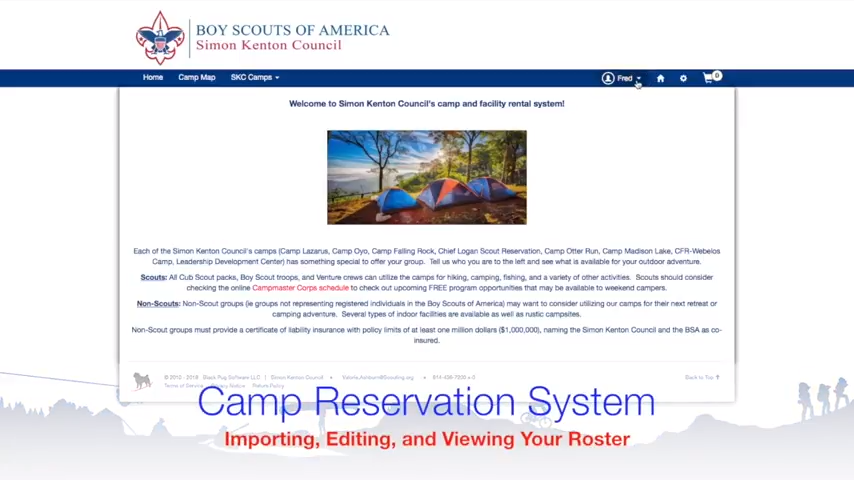Located in Sunland Park, New Mexico, Camp Tyler Frances is the Yucca Council's premier location for Unit Events, Council Events, Day Camps, Urban Camping, Unit, District and Council Training and much more!
Night
12:00 PM
11:00 AM
| 100 | Capacity |
| 20 | Seating |
| 100 | Sleeping |
| Co-Ed Friendly |
Yucca Council, BSA Camping Guidelines Yucca Council camps are operated for the benefit of all registered Scouts and Scouters in accordance with standards of the council. Rules for acceptance and participation in camp programs are the same for everyone without regard to race, color, creed, or national origin. These policies and procedures have been established so as to pertain to everyone in camp. These guidelines are meant to help all of us preserve the camping facilities for the future use of the Scouts and Scouters of the Yucca Council and its guests. The rules of Scout camps everywhere are based on the Scout Oath, Scout Law, and common sense. Every precaution is taken to insure the safety of all campers and every effort is made to make their camp stay a pleasant and memorable experience. Please insure you and your unit follow these basic guidelines and enjoy your stay in our camps. Permits / Paperwork: All units must have an approved, in advance Camp Permit to use the camp facilities. This must be presented to the Camp Master when arriving in camp (before proceeding to the reserved campsite or cabin, not after!). Tour Permits for out of council units as well as Unit or Group Rosters are required at check-in as well. All units/groups must physically check out with the Camp Master before leaving the camp. Unit/Group Leadership: All units/groups must have at least 2 adult leaders in camp at ail times, one of which is 21 years of age or older. Water & Restroom Facilities: Please monitor cleanliness, and notify the Deputy Chief Camp Master of Facilities, Camp Master, or Camp Caretaker of any problems. As with other facilities in camp; showers and restroom facilities are seasonal and are normally drained and winterized to prevent freeze damage. Never open or allow use of facilities that have been winterized without permission of Deputy Chief Camp Master-Facilities. Check with the Deputy Chief Camp Master-Facilities for the most convenient location to get water for a particular Cabin or Tent Site. Latrines / Port-a-Potties: These are located in close proximity to each campsite or building. They are not to be used to dump leftover food or trash. This results in extra expense to the Yucca Council when they are pumped out. Automobiles & Parking: According to national policy on transportation of Scouts, the following guidelines will be enforced at camp: Drivers must be 18 years old or older and possess a valid license. Vehicles must be in good mechanical condition, and carry minimum liability insurance of $50,000 - $100,000. Neither truck beds nor trailers may carry passengers. There will be only one passenger per seat belt. Traffic regulations must be adhered to and driving should be done during daylight hours. Ali vehicles should have no less than Vi a tank of fuel while in camp (due to the possibility of evacuation). Private vehicles are not permitted to park in campsites or on the access roads into camp. All vehicles must be returned to the main parking lot at the lodge after loading or unloading gear during check-in and checkout. All vehicles are to be backed into parking space and facing out. Parking spaces are provided at each of the buildings, otherwise all vehicles must be parked in the main parking lot. 32 Those who are physically disabled and require a vehicle for mobility will be issued a special permit by the Camp Master, and must agree to abide by the rules in order to maintain the privilege. The permit is hung from the rear-view mirror of the vehicle while it is in camp. Smoking: Oniy aduits over the age of 18 may smoke and smoking is approved only in the designated area. The oniy designated smoking area in camp is behind the dining hail. Please be responsible for properly disposing of your waste. Youth under the age of 18 are not permitted to smoke. Alcohol & Drugs: The Boy Scouts of America have some firm policies regarding aicohol and drugs, which are not debatable. Any staff member, leader, or camper unwilling to abide by these policies will be removed from camp immediately. Possession, consumption, or being under the influence of alcohol, illegal, or non-prescription drugs will not be tolerated on property of Boy Scouts of America. Anyone facilitating or participating in the aforementioned wiii be dismissed from camp immediately. The Yucca Council, Boy Scouts of America, supports aii locai iaws, codes, and ordinances of the government bodies in whose territory we operate facilities. Additionally, the council supports the National Council, BSA policy on drug abuse. Knives, Saws & Axes: These may be used oniy in campsites and program areas. Sheath knives are not permitted at camp. Proper axe-yards and Totin' Chip rules should be followed. Firearms / Weapons: Weapons may not be brought to camp unless they are part of an approved Shooting Program with the proper instructors. Oniy singie shot boit action 22 cal. Rifles, Black Powder Rifles and Guns, Shotguns, 22 cal. Pistols, Bows, and Tomahawks may be used. The weapons can only be used by the age and program appropriate leveis. All weapons and ammunition brought in by a unit must be stored in a secure iocation by the Camp Master. No exceptions. Hunting: Hunting on camp property is strictiy prohibited. If you see anyone hunting on camp property during your stay, piease record the location, description of hunter and iicense number (if possibie) and report it to the Camp Master and Chief Camp Master. Motorized ATV's: Motorized off road vehicles (snowmobiles, 4-wheelers, dirt bikes, etc.) are not permitted on camp property. If you see anyone using these please get a description of the person / vehicle as well as a license number and report it immediateiy to the Camp Master and Chief Camp Master. Fireworks: No fireworks of any type are prohibited in camp and are against the iaw in the US Forests. Items wiii be confiscated and turned over to the Otero County SherrifTs Department for proper disposai. Fires: Fires are a potentiai hazard in camp, particuiariy if drought conditions or high winds exist. The Chief Camp Master or Deputy Chief Camp Master of Faciiities at his discretion may restrict or prohibit fires under these circumstances. Piease observe the Rre Danger signs. Camp Master must notify each unit of fire restrictions upon check-in. Campfires may be built in any estabiished fire ring or firepiace. Do not move fire rings or build new ones without permission of Deputy Chief Camp Master of Faciiities. Piease observe fire safety ruies at ali times- never leave fires unattended. 33 Firewood: Firewood Is provided at the lodge as a courtesy to those renting the facility. Please use this wood in fireplace only- NOT for outdoor campfires! There is an ample supply of firewood in the surrounding woods. Any fallen timber may be cut up and utilized as needed. Remember the next campers- a "Courtesy Pile" would be appreciated. Any group that cuts down or damages live or standing timber will be held financially responsible. Tree cutting: Tree cutting is to be done only with permission of the Chief Camp Master or Deputy Chief Camp Master-Facilities. No live trees are to be cut. No chain saws are permitted in camp without prior approval- see policy below. Chainsaws: Chainsaws may be used only by adults in accordance with BSA policies- Eye & Hearing protection as well as proper protective clothing must be worn. See Chief Camp Master or Deputy Chief Camp Master-Facilities for clarification. BSA National Camp Standard #M-54 states: Any person who operates a chainsaw or fells a tree more than three inches in diameter must be approved by the Chief Camp Master or Deputy Chief Camp Master-Facilities. Operators must be at least 18 years old and meet one of the following requirements: (1) be a professional forester, (2) be a certified arborist, (3) have received training in these techniques from the Ranger section of National Camp School, (4) have written documentation of having other training in these techniques that is recognized by the state or federal government, (5) successful completion of BSA Chainsaw Safety Training course (No. 20-136) Trash: All garbage is to be bagged, tied, and taken home at the end of the weekend. Each unit should take care to place their trash in a safe location to prevent bears or mini-bears from attacking their trash and making a mess in the forest. There are no dumpster service at Camp Dale Resler, so all trash is to be packed out. Camp Service Projects: The Deputy Chief Camp Master-Facilities will provide you with ideas for camp projects. The tools to accomplish these and other chores around camp will be located at the storage maintenance shop. All tools and gear must be returned to this drea prior to checkout. The Camp Master is responsible to assure that tools and gear are returned and in good shape. Vandalism and Damages: All vandalism and destruction of property will be reported to the Deputy Chief Camp Master-Facilities. The Camp Master will fill out an incident report and route the form to the Deputy Chief Camp Master. Units responsible for vandalism and destruction of property will be billed through the Council Service Center for the replacement cost of the damage. Personal Property: Yucca Council cannot be responsible for loss or damage to personal property at Camp Dale Resler. It is recommended that campers have insurance coverage for property brought to camp. Most homeowner's policies include coverage. Pets: Pets are not permitted to stay overnight in camp and are not permitted in buildings. Any pets brought in to camp for a visit must be properly licensed, immunized and under the handler's control at all times (on a leash). This policy does not pertain to pets of permanent camp residents or service animals. Owners are responsible for any damage or injuries caused by their pets. Insurance Coverage: All Yucca Council units are covered under Council insurance. If an accident should occur send an insurance form with the unit leader. A supply of these forms is on hand at the Camp Masters cabin. Non-Scouting units that may be using the camp during the weekend have provided to the Council Service Center their insurance information and Hold Harmless Agreements so no forms need to be issued.
Please make camp reservations online to schedule your event at least 30 days in advance. Once the event is scheduled the Council Campmaster Coordinator will make arrangements to assign a trained Campmaster for your unit.
The designated Campmaster will contact the unit leader who made the reservations online to confirm your camping dates.
The Campmaster and unit leader should communicate with each other 1-week prior to the check-in date and 24-hours prior to confirm all arrangements.
On the check-in day, the assigned Campmaster will receive your Scout unit and will remain on-site during your stay. The Campmaster is responsible for overall camp operations.
Please turn in a roster of participants including adults upon check-in.
Bring a completed BSA Medical Form (parts A&B) for every participating Scout and adult
All units must follow all Yucca Council and National BSA policies.
At least one adult leader MUST be BALOO/IOLS trained for Scout activities.
Parking is restricted to the parking lot only. ADA parking can be accommodated by contacting the Ranger or Campmaster on duty.
We recommended you bring a wagon or hand cart to transport camping gear from parking lot to campsite.
Any trash or signage must be removed from camp; do not leave anything on camp.
Ground fires are prohibited, with exception of the campfire area. Propane camp stoves are recommended vs charcoal.
ATVs, Mules, Gators, Rhinos, tractors, mowers are prohibited.
Check in with the Campmaster
Check in with the Campmaster
As of January, 2024, Cancellation should be made 3-business days prior to the check-in date for a 100% refund. After that, no refunds.







